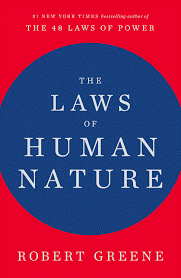1.5 minute read
Portsmouth, NH
“Peter, you don’t need to break your arm to know it hurts!”—was a frequent, finger-shaking admonition my mother frequently used with my sister Claudia and me when we were adolescents (the truth is more like, until we were 50). I think what she was saying was that she hoped we would learn from the experiences of other people around us, and not each have to metaphorically personally break our own arms to experience the pain and learn the lesson. Or any lesson.
Why is this relevant to Entrepreneur Owner-Managers (EOMs) and Positive Enterprise Value?
I have witnessed different ways Entrepreneur Owner-Managers learn. One variety of owner-manager, the one usually featured in popular entrepreneurial stories is a rugged individual—he has to learn everything individually and anew. Every day is a new day, every experience is a new experience. You know some of these business owners—maybe you are one. Some of them have some success. They illustrate Nietzsche’s axiom that, “what doesn’t kill me will make me stronger.” True…if you survive (or more apt, if your organization does).
Then there are other varieties of owner-managers who can and do learn from others “Ahaaaa—I see you broke your arm and it hurts. Bet my arm would hurt if I broke it too. Hmm…how’d that happen? What was the cause? Gonna try not to do that!” For these people, the brain is constantly seeking meaning…from connections and patterns between what we know now, and what we do not yet know.
The best seasoned successful EOMs learn the ambiguous or the unknown by proceeding from what they do know or others have learned before them, and then through the magic of metaphor, begin to “get” what they don’t know. They ask, what is this unknown thing similar to what I already understand?
At an early Bigelow Forum, Harvard psychologist Daniel Gilbert quipped that, “human beings are works in progress that mistakenly think they’re finished.” As high performing EOMs with skin in the game, experiences of the general population don’t inform us very much at all. The general pop has an asymmetry of risk (they mostly have opinions with no skin in the game). On the other hand, other EOMs in the arena, putting it on the line and occasionally getting their asses kicked and yet have sustained success—those are people we can learn from, they leave metaphorical breadcrumbs on their journey for us to learn from.
This is an “EOM Superpower”: to be able to access the learning of all the people around you —especially those with skin in the game who have done it before.
What I am Reading / Listening to
Contributed by Ryan P. Tracey
Laws of Human Nature (2018)
By Robert Greene
If you have ever visited a predator wildlife sanctuary you know they make it very clear not to bring any pets. If your Labrador Retriever ever got curious and found its way into the area housing a pack of wolves, it would not be a happy day for your family. The wolves, despite living in a secluded area and fed daily by the sanctuary keepers, behave principally based on their biological evolved instincts. I realize that as humans, we also have certain biological drivers or motivations underneath the surface that govern how we behave. The Laws of Human Nature, by Robert Greene, calls this out and attempts to really explore the most basic of questions – why we are the way we are.
I was given this book by a friend. At first it appeared a long read with an almost academic or scholarly research feel. Each chapter explores what Greene describes as one of the many “laws of human nature,” or basic human traits. Greene then uses a story of a historical figure to showcase how that trait played itself out, sometimes for the good, sometimes bad. But the real magic of the book is that it presents you with a mirror into your own inner workings for each trait and forces you to ask the deeper questions of, “why I act, or react, the way I do.”
The book describes how most of us tend to live on the surface, spending our days reacting emotionally to what other people in our lives say and do. As social creatures we fall prey to other’s actions and manipulations, and equally enforce that same nature on others. Have you ever had such a negative encounter with someone that the rest of the day felt tainted? What if we were able to step back from that encounter, emotionally detach from the moment, and instead seek to understand the true motivation or cause of the persons behavior?
Greene’s book is meant to peel back the onion and bring to light the root causes of the most basic elements of human behavior. By acknowledging these numerous innate psychological habits present in all of us and questioning which of these may be really causing someone to act the way they are you are able to understand, communicate, and connect on a truer level. By observing instead of reacting and becoming fully aware of our deepest secrets and motivations, Greene argues that you over time learn to master your nature. Then, unlike the predatory wolf driven by instinct first, we’re able to choose the path that leads to more empathetic, connected, and happier lives.
As a father of three children under age five, I am front and center on the genesis of the basic human nature described in the book. My two-year old’s world is based on survival instincts and a completely self-centered mind set. Everything is “MINE” and any intrusion on his perspective is emotionally catastrophic for him. The theme revealed in Greene’s book is that, without deep thinking introspection, as adults we may not fully evolve beyond that self-centered universe. Only through exercising the most patient and brutally honest self-awareness can we all see what is driving our different behaviors. My two-year old wants more milk and throws his fork across the table. I get cut off on the highway forcing me to jam on my brakes—the expletives fly. We all will have our moments. The idea is equally not to think of yourself as a saint, and to go out looking for other saintly people—it is to understand how little control others have over their own behavior and to look deeper into what causes their actions.
This book serves as an insightful and revealing guide into examining the drivers behind this behavior in yourself and others and illustrates how if you can continue to grow in this awareness, there is a clear path to living a richer life as a better parent, husband, friend, co-worker, or person in general. I recommend it.
Entrepreneur Owner-Manager Quote
“It is important to me to find that balance and have it be sustainable, to be able to see my family, to be able to ride my bike, to be able to get to the mountains and do the things I love to do, but also have a successful business.”
- Thatcher Wine, Owner & Founder, Juniper Books, LLC

Energy Creation
Contributed by Sophie A. Southworth
My Version of a “Brainstorm”?
Finding a new routine with a clear and focused mindset has proven to be very challenging for me the past few weeks.
Every day is different. One day I think I have it all figured out – I run, I walk, I juice, I don’t cringe when I rearrange my furniture to accommodate my new at home gym. I manage my news and social media intake with moderation. Other days I feel like lead. It is easy for me to blame the weather or the darker side of loneliness for these heavy moods but the reality is that at the core of this feeling is the fact that my daily rituals have been rocked.
I am no stranger to living alone or even working alone. I have worked remotely, I have worked on the road spending more nights in a hotel than in my apartment—resulting in very little connection to a “home base.” Put simply, that didn’t work for me. I struggled to stay healthy and positive and eventually figured out how to make it work. Ultimately however, I very intentionally wrapped up that chapter of my life with the desire to live exactly in the opposite way: I created a home for myself, I go to work in an office, I have a desk, I am part of a team of people who challenge me in all the best ways daily, and I see them every day. I have cultivated meaningful relationships and connections to my friends and community and developed habits and practices that are nourishing and bring me peace.
On the heavier days of this quarantine, when I wake up on the wrong side of the bed or my self-defense against negativity or anxiety doesn’t match up, the routine and lifestyle I enjoyed so much seems gone and distant.
A high school teacher of mine (Thank you Andrew Kasprzak wherever you are!) explained to me once this concept of brainstorming and I think of it often. He would use this term as a departure from the traditional concept of problem-solving. Instead he described it where our brain is quite literally in a storm. Thoughts, emotions, incomplete sentences taking up space in your mind in a whirlwind pattern. I can’t say for sure if he meant this brainstorm to be defined as negative or not, but I give myself liberty to interpret it based on my mood and somehow it always seems to work. On a more positive, sunny day I am gathering my thoughts and taking stock of progress and areas of opportunity, on a negative day or moment (I’d like to think I don’t let a whole day be categorized as “bad”) the brainstorm is confusion and anxiety. Either way, it’s a storm (much like the train of thought I am experiencing as I write this!).
I know this time we spend at home I will spend mostly by myself. It’s an opportunity for me to grow. Some semblance of my previous routine will come back (hopefully sooner rather than later), but I would be doing myself a disservice to think that life will be the same. It will be different—very different, and I am responsible for ensuring that it is for the better.
I will practice patience with myself and will appreciate the opportunities I have in front of me. I will question myself and my habits with curiosity instead of interrogation. I will learn to go easy on myself on the harder days when I feel I can’t control the storm.



